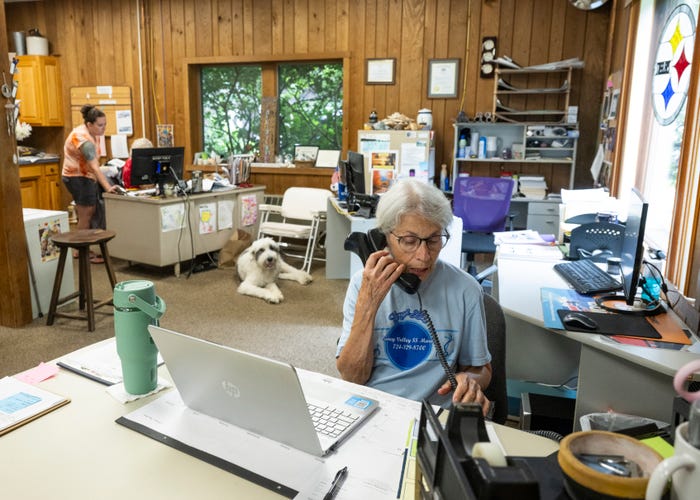UPDATE: America’s oldest workers, some over 80 years old, are experiencing significant pay cuts, forcing many to accept low-wage jobs just to make ends meet. New reports reveal that as inflation continues to rise, these seniors are increasingly reliant on minimum wage positions, often in retail and service industries.
Vince Scidone, who celebrated his 90th birthday while working at an OnCue convenience store outside Oklahoma City, epitomizes this urgent trend. Scidone, earning $14.90 an hour, has returned to work after a long career in carpentry, driven by financial necessity. Despite receiving $104,000 annually from Social Security and his pension, his monthly expenses leave him struggling to maintain a comfortable lifestyle.
The situation highlights the harsh reality for many older Americans, who face dwindling job opportunities. A recent Business Insider analysis of Census Bureau data shows that the median income for workers aged 80 and older is approximately $57,000 annually, only slightly above the broader workforce average of $45,000. Many seniors are now forced to accept roles as grocery cashiers, front-desk assistants, or retail salespeople, often earning less than $20 an hour.
The federal minimum wage of $7.25 has remained unchanged since 2009, while inflation has surged by over 50% during that period. Despite the overwhelming need for better pay, many elderly workers indicate that they find value beyond just monetary compensation, citing a sense of purpose in their roles.
At 82 years old, Patricia Wheatley works at her friend’s boat shop, earning $16 an hour to help support her family. She reflects on her previous life as a music teacher and the financial challenges that aging brings. “By the world’s standards, I am far from a success story, though my life is comfortable,” she stated.
Even with lower incomes, many of these older workers have no choice but to continue working. John Fahy, 88, works at Home Depot, earning $23 an hour, well below what he earned in his engineering career. He expressed that maintaining a job keeps him socially engaged, stating, “Working keeps me alive because I’m in contact with people.”
The trend of older Americans working in low-paying jobs is exacerbated by systemic ageism in hiring practices. Leanne Clark-Shirley, president and CEO of the American Society on Aging, emphasizes the need for organizations to eliminate biases against older applicants. “We treat people differently based on their birthday,” she stated.
The grim reality is that many older workers are facing physically demanding roles that jeopardize their health. Kenn Hildebrand, 89, juggles three part-time jobs just to survive, earning what he describes as a week’s salary from decades ago. “I’d like a more stable financial future,” he lamented.
As America’s workforce continues to age, experts are calling for more comprehensive support systems for older workers, including training programs aimed at enhancing job skills. Many believe that older workers are some of the most reliable employees, as their need for meaningful engagement drives their work ethic.
The urgent call for change is clear: as the landscape of employment shifts, older Americans deserve better opportunities and fair compensation. The growing number of seniors working past their 80th birthdays reflects both a necessity for income and a desire to stay active and engaged in their communities.
As this situation develops, the plight of older workers remains a critical issue that speaks to broader economic challenges faced by millions across the nation.





































































